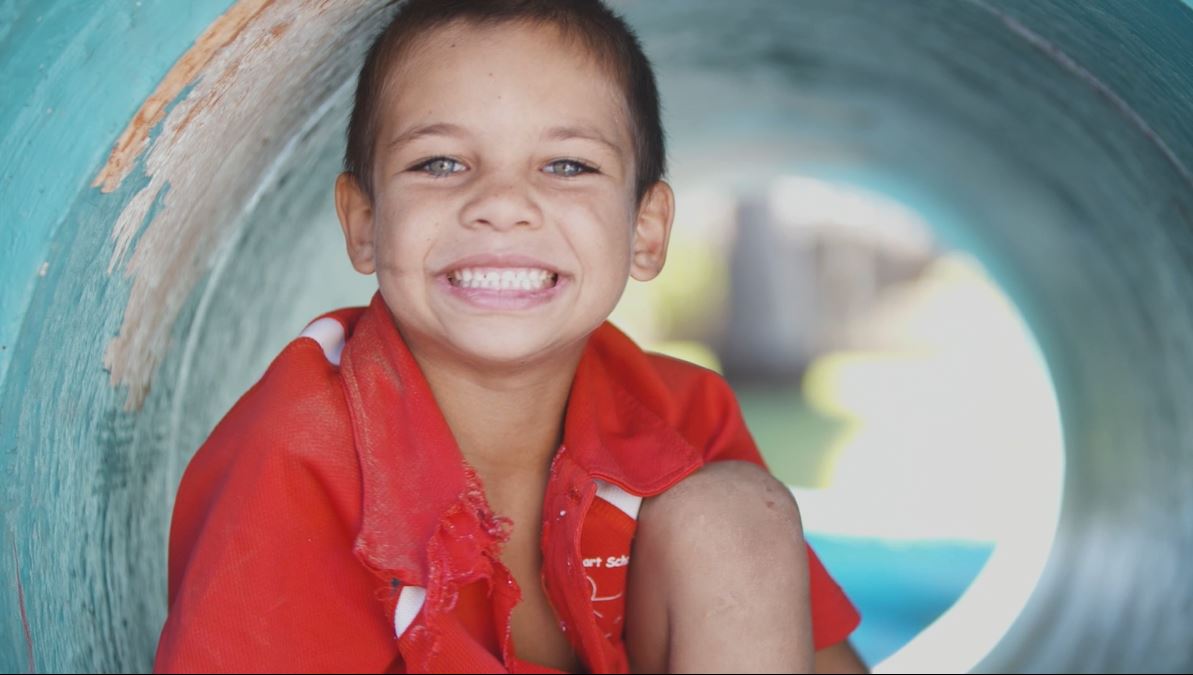
Researchers from The Kids Research Institute Australia are joining forces with international experts in acute rheumatic fever (ARF) and rheumatic heart disease (RHD) to transform the diagnosis of these diseases thanks to an $US8 million grant from the Leducq Foundation.
Led from the Cincinnati Children’s Hospital Medical Center, the Acute Rheumatic Fever Diagnosis Collaborative (ARC) Network will look to identify and validate biomarkers for ARF, which will then play a critical role in the development of a highly sensitive diagnostic test providing fast-tracked results.
ARF is a multiorgan inflammatory disorder that results from the body’s autoimmune response to Group A Streptococcus (Strep A) infections, and the progressive heart valve damage caused by repeated episodes can then lead to RHD, heart failure and premature death.
Affecting remote Aboriginal and Torres Strait Islander Australians at some of the highest rates in the world, there are at least 470,000 cases of ARF reported worldwide each year, with most occurring in children aged 5 – 15.
According to Dr Timothy Barnett, Head of the Strep A Pathogenesis and Diagnostics team at the Wesfarmers Centre of Vaccines and Infectious Diseases, based at The Kids Research Institute Australia, preventing ARF and RHD is especially challenging as the disease is very difficult to diagnose.
“Despite the high burden of cases in most low and middle-income countries, as well as right here in Australia amongst our remote Aboriginal communities, symptoms of ARF can overlap with other common childhood illnesses. Accurate diagnosis of ARF requires medical expertise and laboratory tests that are not always available in the affected populations,” said Dr Barnett.
“A single, easy-to-deploy diagnostic test would be a game-changer in ensuring patients with ARF and at risk of developing RHD can begin taking preventative antibiotics as early as possible to avoid major heart surgery or death at a young age.
“The availability of a diagnostic test suitable for use in remote settings would also prevent some patients receiving unnecessary, painful antibiotic injections as a result of misdiagnosis.
“Over the next five years, we will be using a two-pronged approach – recruiting ARF patients in low- and middle-income countries across four continents, and then using cutting- edge science to identify and validate biomarkers that will serve as a basis for the world’s first sensitive and specific diagnostic test for ARF,” concluded Dr Barnett.
In Western Australia, contributions to the global effort will be led by international experts in Strep A and RHD, including Dr Barnett, The Kids Research Institute Australia Director Professor Jonathan Carapetis, END RHD Program Head Associate Professor Asha Bowen, and Head of Systems Vaccinology, Professor Tobias Kollmann.
Andrea Beaton, MD, pediatric cardiologist at Cincinnati Children’s Hospital, is the lead researcher for this ground-breaking project.
“The ARC Network brings together an incredible group of global experts who will utilise modern scientific methods to identify a diagnostic test for rheumatic fever,” said Dr Beaton.
“ARC members represent experts in bacterial pathogenesis, immunology, genetics, system biology, bioinformatics, and epidemiology, as well as clinicians living and working in countries where RHD remains endemic.
“Our discoveries will ensure higher quality epidemiological surveillance, inform vaccine safety and trials and help innovate new strategies for ARF prevention and treatment,” said Dr Beaton.
For more information about Strep A and RHD research underway, please visit the END RHD Program page.
ARC members represent: Cincinnati Children’s Hospital Medical Center, The Federal University of Minas Gerais, State Children’s Hospital, Menzies School of Health, Charles Darwin University, Tidzewe Center, Baylor College of Medicine, Texas Children’s Hospital, The Children’s Hospital and Institute of Child Health Lahore, Children’s National Medical Centre, The Uganda Heart Institute, The Kids Research Institute Australia, Perth Children’s Hospital, Mulago National Referral Hospital, The University of Auckland, Imperial College London, Biotome, Sanquin, The University of British Columbia, All India Institute of Medical Sciences, The University of Queensland, The University of Cape Town, Hudson Institute of Medical Research, University of Melbourne, Murdoch Children’s Research Institute, The Royal Children’s Hospital, and the Center of Disease Control.
ARF statistics: Standardization of Epidemiological Surveillance of Acute Rheumatic Fever Open Forum Infectious Diseases, Volume 9, Issue Supplement_1, September 2022, Pages S41–S49, https://doi.org/10.1093/ofid/ofac252
